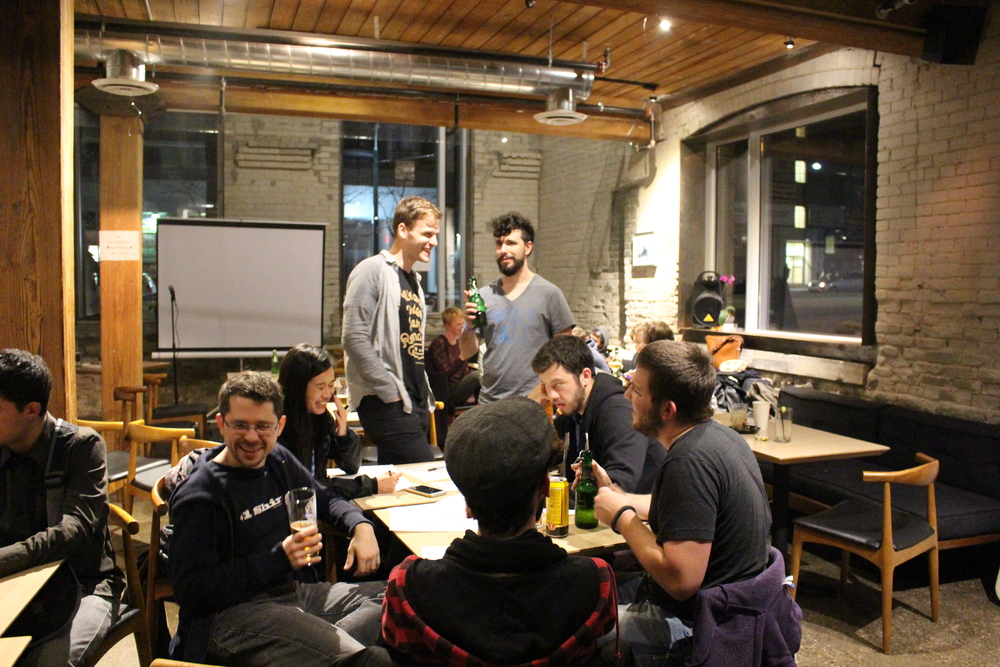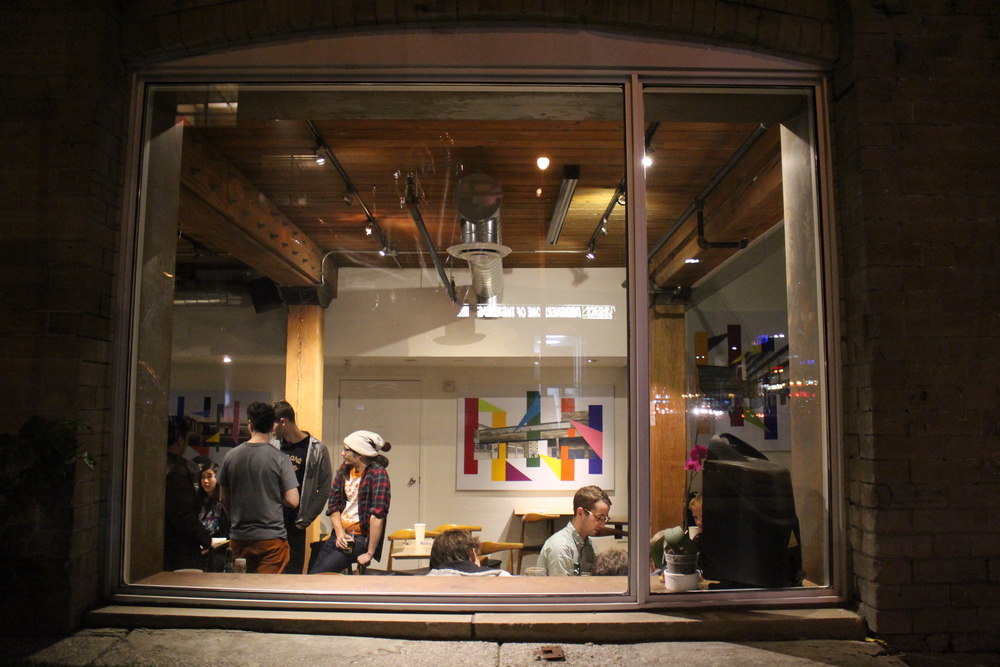Built to Play 47: Poor Assumptions - a podcast by Built to Crew
from 2014-10-28T19:03:57
Subscribe (iTunes)Subscribe (Stitcher)
It's an episode in which we finally stop talking about virtual reality and move on to weeks of playing with pals. We start with the end of Gamercamp.
Movie buffs visit film festivals. Bibliophiles browse books fairs. But game players charge into the convention. It's a practice hailing back from the olden times of the Star Trek conventions, to tech meetups in the early Silicon Valley and the mighty heights of the San Diego Comic Con. For the avid fan, there's multiple Penny Arcade Expos in the United States, Gamescom in Germany, and the Tokyo Game Show in Japan. These days there's so many that if you take a look in your own backyard, you'll probably find one.
Big game conventions can feel exhausting though. You're fighting tens of thousands of people in a hall. Massive companies push their way towards you to showcase their newest games. And what if you're looking for local products, games made in your hometown, maybe an experiment or two? Every hub for game design has at least one little event for enthusiasts, like a party a few friends put together for their community. In Toronto, we hadGamercamp.
The final day at Gamercamp after a long trivia night
Outside the Ocho Hotel on Sunday night, which has hosted Gamercamp for the last two years.
Jaime Woo settles in Sunday night after the Gamercamp wraps up and the Ocho Hotel kitchen closes
Co-founded by Jaime Woo, Gamercamp was a games festival created mostly for the founder's curiosity. They heard Torontonians were making games and getting attention for it, but couldn't see the games anywhere. So they made their own event. Their first year, it was just a series of talks in a small theatre on one day, and despite a rocky start they kept at it. Six years later, Gamercamp was the biggest festival of its kind in the city, including an arcade and multiple parties in a single weekend. Compared to even a medium-sized convention like IndieCade, Gamercamp is tiny. Yet, by any measure, it's been a success. Which is why the decision to close up shop came as a surprise to some,and upset a few others.
We brought Jaime into the studio to talk about those early years and why he's decided to end Gamercamp. Tune in a minute into our show for more from Jaime.
Special thanks to Jon Remedios who was not in the credits this week but deserves to be there. And Thanks to everyone who ran Gamercamp the last six years. It's been a blast.
After diving through another round of death threats, we round off with a final bout of scepticism about the future of virtual reality.
We've done a lot of talking about the wonders of VR, but we've been sceptical throughout. In every interview we've explored the limitations and the unforeseen complications. Virtual reality could very well be the future of video games and much more, but for now it's unproven beyond a certain subset of players.
So what are the reasons to be sceptical? Let's not think of specific technical details. VR, not matter how you cut it is going to be expensive, and if not expensive, then it's going to be limiting. Moving in a 3D world is challenging just from a control standpoint. You can't see the controller with a headset on, meaning that people need to be familiar with the controls and the controller before they start playing, which isn't inviting to new players. Plus, you need high end hardware to run two screens inside the VR headset, especially as games become more graphics intensive. One way to smoothen these out is adding more peripherals and sensors, like a camera or markers on the wall, but that adds to the price. It also needs a large space for all of this equipment and for you to be doing anything except sitting or standing.
There's another thing that VR needs: presence. Presence is when you are so engrossed in a virtual environment you forget you're in your living room. That's what all the major virtual reality headset manufacturers are competing for, but have yet to master. And without it, Tadhg Kelly believes we're still a while away from VR being a mainstream phenomenon. He's a game design consultant and earlier this year he wrote a column about "the death of VR", and so we thought it would be a good idea to talk to him as we wrap up.
**Listen to Tadhg Kelly discuss the idea of a "perfect" VR, why it's hard to achieve, and why 2015 will be the Year of Virtual Reality anyway starting about 38:50. **
Thanks to the Free Music Archive for music this week: "OLPC" by Marco Raaphorst, "may light remix by etc" by SHOMMOSE, "So this is how it ends" by Earsmack, "Love Theme" by Dave Merson Hess, "As Colorful as Ever" by Broke for Free, and "summer breeze let it out (johnny_ripper remix)" by smoking fox. Our theme tune was "japanese prog" by Rushus.
On Freesound we used "convention crowd noise" by awesoman.
Built to Play is a product of the Scope at Ryerson radio station in the heart of downtown Toronto. It was produced and edited by Arman Aghbali and written by Daniel Rosen.
If you like the show please subscribe and rate us online. It helps more people find the show and gives us an idea how we're doing. Feel free to comment down below.
Further episodes of Built to Play
Further podcasts by Built to Crew
Website of Built to Crew



